Essential Guide to Industrial Warehousing: Key Features, Technologies & Challenges
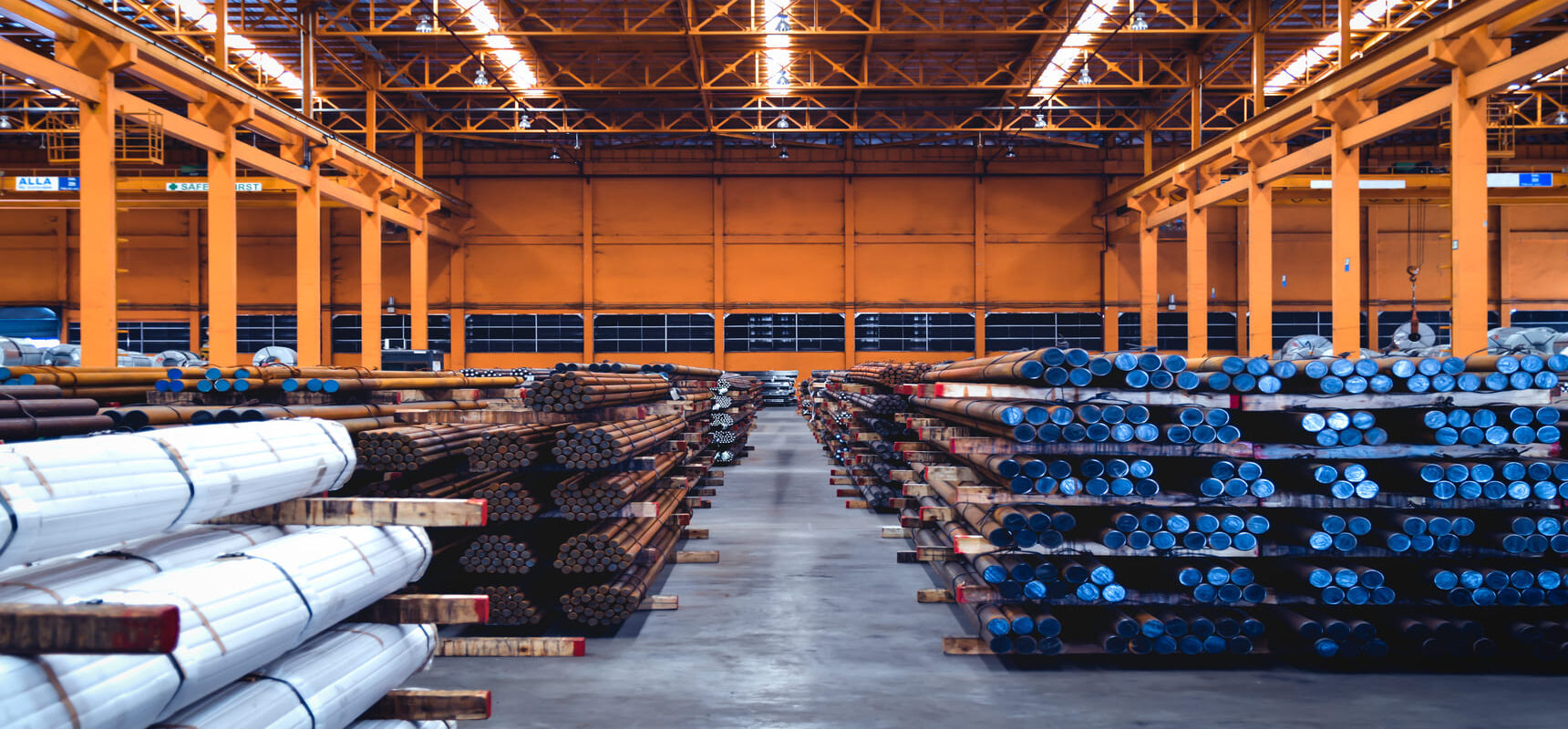
Industrial warehousing plays a pivotal role in the global supply chain, ensuring the efficient storage, management, and distribution of goods. In the broader transportation and warehousing industry, millions of people are employed to keep products moving (about 6.6 million in the U.S. as of mid-2024). North America (including the USA, Canada, and Mexico) similarly relies on both industrial and commercial warehousing to keep goods flowing to businesses and consumers. Businesses across industries rely on industrial warehouses to streamline logistics and maintain a steady flow of products to market. For manufacturers, warehousing operations handle raw materials and work-in-process inventory that keep production lines running, while retailers depend on storage facilities to manage merchandise ready for distribution. Many companies partner with third-party logistics (3PL) providers for their warehouse needs. These 3PL partners offer comprehensive industrial warehousing and distribution services that let businesses outsource inventory management and fulfillment. By leveraging such services, companies gain access to comprehensive industrial warehouse solutions encompassing storage, transportation, and order fulfillment without having to invest in their own facilities.
Modern industrial warehouses feature high ceilings, heavy-duty racks, and advanced handling equipment to accommodate large volumes of goods efficiently. These facilities are built to handle heavy or oversized items, enabling safe industrial equipment warehousing at scale. Industrial warehouses thus serve as the backbone of logistics networks, ensuring products flow smoothly from production lines to end customers.
What is an Industrial Warehouse?
An industrial warehouse is a large building that stores raw materials, semi‑finished products or finished goods while accommodating the machinery and infrastructure needed for heavy industry. Unlike standard storage units, industrial warehouses typically feature reinforced floors, loading docks and specialized material‑handling equipment. Because industrial space often combines warehouse and office functions, it can support manufacturing, assembly, fabrication and packaging operations. This versatility makes industrial warehouses the backbone of supply chains for sectors ranging from automotive and aerospace to consumer goods.
Key Differences Between Industrial Warehouses and Other Types of Warehouses
To better understand the unique nature of industrial warehousing, consider how it compares to a few other common warehouse types:
Industrial vs. Commercial Warehousing
Commercial warehousing and storage facilities are primarily designed for the storage and distribution of merchandise (retail goods, e-commerce products, etc.), whereas industrial warehouses are built for more intensive use. Industrial facilities often support manufacturing activities (e.g. fabrication or assembly) in addition to storage, and they house heavy or bulk items requiring specialized handling. In practice, an industrial warehouse is a subset of industrial real estate (often larger, in industrial zones) and is generally more robust than a typical commercial storage facility.
Industrial vs. Distribution Centers
A distribution center (or logistics center) is focused on fast-moving inventory and order fulfillment, goods typically flow in and out quickly to retailers or end customers. Industrial warehouses, by contrast, may hold goods through various stages of production or for longer-term storage. They can store raw materials, work-in-process, and finished products, not just handle outbound orders. Whereas a distribution center prioritizes shipping efficiency, an industrial warehouse provides broader support for production and storage needs beyond immediate distribution.
Industrial vs. Specialized Storage
Other warehouse types serve specific purposes. For example, cold storage warehouses preserve perishable goods under temperature control, and bonded warehouses store imported goods under customs bond. Industrial warehouses differ in that they are generally geared toward heavy industry needs, large volumes, heavy goods, or integration with manufacturing. However, note that an industrial warehouse can also be temperature-controlled or bonded if serving a specialized industrial requirement; the key difference is the scale and infrastructure for industrial use.
By design, industrial warehouses are more than simple storage units, they are critical infrastructure for manufacturing and large-scale supply chain operations.
Technologies Transforming Industrial Warehousing
Industrial warehouses have significantly evolved with technology, improving efficiency, accuracy, and security. The following are some of the most impactful technologies shaping modern warehousing:
1. Warehouse Management Systems (WMS)
WMS software tracks inventory, optimizes order processing, and streamlines shipment preparation. It integrates with Enterprise Resource Planning (ERP) systems to provide real-time stock updates and order status, ensuring seamless operations.
2. Automated Storage and Retrieval Systems (AS/RS)
An automated storage and retrieval system (AS/RS) uses computer‑ and robot‑controlled equipment to automatically place and retrieve items at defined locations. AS/RS applications are common in just‑in‑time manufacturing and order‑fulfillment operations. Benefits include faster throughput, accurate order fulfillment and optimized storage space, reducing the labor required and minimizing product damage.
3. Internet of Things (IoT) Sensors
IoT devices connect warehouse equipment, providing real-time data on inventory levels, machine performance, and environmental conditions. This improves predictive maintenance, reduces waste, and enhances operational transparency.
4. Autonomous Mobile Robots (AMRs) & Automated Guided Vehicles (AGVs)
AMRs are advanced robots equipped with sensors, cameras and navigation systems that allow them to move goods without human intervention. In warehouses, AMRs transport goods, manage inventory and assist with order picking, which improves workflow and reduces errors. They enable real‑time inventory tracking, lower operational costs and increase throughput by continuously moving goods across large facilities.
5. Augmented Reality (AR) for Warehouse Workers
AR headsets and smart glasses overlay digital information onto a worker’s field of view. A case study published in The International Journal of Advanced Manufacturing Technology found that using an AR tool allowed warehouse pickers to complete orders 37 % faster than when using paper lists, reducing average pick time from 16.5 to 10.3 minutes and decreasing errors. Companies like DHL have implemented “vision picking” programs and reported productivity increases of about 15 %. AR can also accelerate training for new workers.
6. Drones for Inventory and Surveillance
Unmanned aerial vehicles are increasingly being deployed inside warehouses. Drones can automate inventory counts, scanning, picking and replenishment and can take stock of an entire warehouse in a couple of hours. They record temperature and humidity data, assist with visual inspections and improve safety by reaching areas that are difficult or dangerous for workers. Drones also handle intralogistics tasks by transporting goods between different areas in the facility and may support same‑day delivery, reducing overall logistics costs.
Key Uses of Industrial Warehouses
Industrial warehouses are essential for business operations, serving as the backbone of logistics and supply chain management. They facilitate critical processes such as goods receipt, internal transport, handling, conditioning, and storage. Optimizing warehouse space utilization and internal organization can have a significant impact on overall business efficiency and cost savings.
- Storage
Warehouses accommodate raw materials, semi-finished products, and finished goods in a controlled and systematic manner. Storage can be:- Short-term – Quick inventory turnover for fast-moving goods.
- Medium-term – Holding goods for seasonal demand or distribution schedules.
- Long-term – Extended storage for bulk inventory or slow-moving products.
- Material Handling
This includes essential warehouse operations like loading, unloading, order picking, and product transfers. Advanced Warehouse Management Systems (WMS) enhance stock control and ensure real-time traceability, reducing errors and improving efficiency. - Order Consolidation
Warehouses play a crucial role in sorting, organizing, and classifying items before shipment. This process:- Reduces transport costs by optimizing vehicle loads.
- Expedites product delivery through efficient inventory planning.
- Ensures accurate shipments by minimizing order errors.
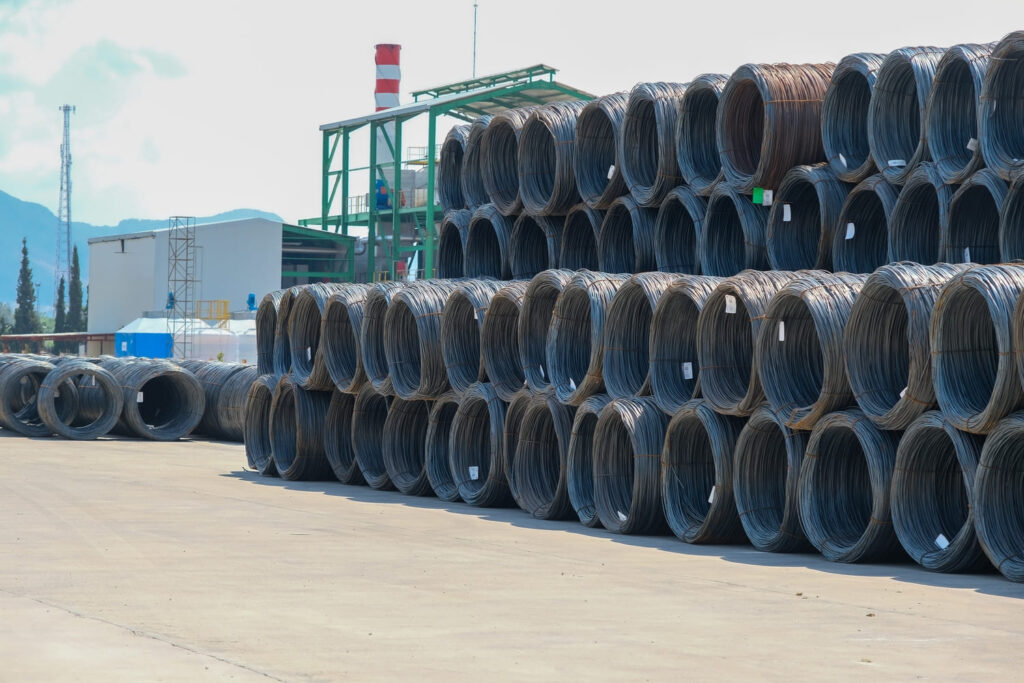
Types of Industrial Warehouses
Distribution Centers – These warehouses store products temporarily and facilitate quick shipping to retailers or customers, often equipped with cross-docking for rapid movement.
Fulfillment Centers – Mainly used for e-commerce, these warehouses store inventory, process orders, and ship products directly to customers.
Cold Storage Warehouses – Designed for perishable goods like food, pharmaceuticals, and chemicals, they maintain controlled temperatures, including refrigerated and frozen storage.
Bonded Warehouses – These facilities store imported goods before customs duties are paid, commonly used in international shipping and trade.
Hazardous Materials Warehouses – Built to store chemicals, flammable materials, or toxic substances, they follow strict safety and environmental regulations.
Manufacturing Warehouses – These combine production and storage, allowing for assembling, packaging, and shipping in the same location.
Raw Materials Warehouses – Used to store raw materials like metal sheets, lumber, or textiles, often located near manufacturing facilities.
Showroom Warehouses – Combining storage and retail, these warehouses serve as display spaces for items like furniture and automobiles.
Flex Warehouses – Featuring both office and storage space, these warehouses are ideal for small businesses needing workspace and inventory storage.
Specialized Warehouses – Designed for industries like aerospace, automotive, or electronics, these warehouses may include heavy-duty racks, cranes, or specialized climate control.
How to Choose the Right Industrial Warehouse Space
Selecting the appropriate industrial warehouse space is a critical decision for businesses. Several factors should be considered to ensure that the chosen facility meets the company’s needs and supports its operations effectively. Making the right choice can enhance operational efficiency, reduce costs, and improve customer satisfaction. Here are some key considerations when choosing an industrial warehouse:
1. Location & Accessibility
- Proximity to ports, railroads, highways, and major distribution centers.
- Ease of access for trucks and heavy equipment (e.g., wide roads, ample loading docks).
- Availability of cross-docking and transloading services to transfer goods efficiently.
2. Storage & Handling Capabilities
- Capacity for bulk, oversized, or temperature-sensitive goods.
- Specialized equipment like cranes, heavy-duty forklifts, and pallet racks to handle heavy machinery and support industrial equipment warehousing needs.
- Compliance with industry standards for food-grade storage or hazardous materials handling.
3. Technology & Inventory Management
- Warehouse Management System (WMS) for real-time inventory tracking.
- Integration with supply chain and logistics software (for shipping, ordering, etc.).
- Automated processes (like barcode/RFID scanning, robotics) to improve accuracy and efficiency.
4. Flexibility & Scalability
- Ability to handle seasonal fluctuations and changing demand
- Short-term and long-term storage options
- Customizable solutions for different industries
5. Cost & Service Transparency
- Competitive pricing with clear fee structures
- No hidden costs for handling, storage, or additional services
- Scalable pricing models based on usage
6. Security & Compliance
- 24/7 surveillance and secure access controls
- Compliance
- with OSHA, FDA, and other industry regulations
- Fire suppression and disaster recovery plans
7. Value-Added Services
- Kitting, labeling, and packaging options
- Freight consolidation and order fulfillment
- Reverse logistics and disposal warehousing
8. Reputation & Experience
- Proven track record with reliable customer reviews and references.
- Experience in handling specific industry needs (e.g., chemicals, electronics, heavy equipment).
- Strong network of transportation and logistics partners to assist with distribution.
Key Challenges in Industrial Warehousing
Industrial warehousing faces several challenges that can impact efficiency and productivity. Some of the most common difficulties include:
- Labor Shortages
The demand for skilled workers in warehousing is high, making it difficult to attract and retain qualified employees. This can lead to reduced efficiency and lower productivity. - Inventory Management Complexity
Managing large volumes of stock while keeping inventory accurate is a major challenge. Poor inventory control can result in stockouts, excess inventory, and supply chain inefficiencies. - Supply Chain Disruptions
Unexpected events such as natural disasters, political instability, and global pandemics can disrupt operations, leading to delays, increased costs, and inefficiencies. - Technology Integration
As automation, robotics, and AI become more prevalent, warehouses must invest in new technologies to stay competitive. However, implementing these innovations requires significant time, money, and training. - Environmental Sustainability
There is growing pressure to minimize the environmental impact of industrial warehousing. This includes energy efficiency, water conservation, and reducing greenhouse gas emissions. - Regulatory Compliance
Warehouses must adhere to strict safety, environmental, and labor regulations. Non-compliance can lead to fines and reputational damage. - Space Constraints
Finding suitable warehouse space is becoming increasingly difficult due to urbanization and changing land use patterns. Limited space can restrict operations and increase costs.
Conclusion
In conclusion, industrial warehouses are essential components of the modern supply chain, providing the infrastructure needed to store and distribute goods efficiently. As businesses continue to evolve and adapt to changing market conditions, industrial warehousing will remain a vital part of their operations, driving growth and success in the years to come. By embracing technological advancements and sustainability initiatives, warehouses can continue to meet the demands of the future, ensuring their relevance and impact in the global economy.
For businesses looking to leverage industrial warehousing to their advantage, the key is to stay informed and choose partners wisely. OLIMP Warehousing is dedicated to matching companies with the best industrial warehousing solutions quickly and easily. Whether you’re searching for “industrial warehousing near me”or looking for commercial warehousing and storage services, OLIMP is here to guide you. We offer a wide range of industrial warehousing services across North America (the U.S. and Canada), connecting you with vetted 3PL warehouses that fit your exact needs. Our network spans facilities for every requirement – from specialized industrial warehouse solutions for heavy-industry equipment to commercial warehousing and storage solutions for retail goods and materials. With our expertise and extensive network, you can rely on OLIMP to find the perfect warehouse solution, so your goods are stored safely, handled efficiently, and ready to move whenever you need. Contact us today to discover how our North American warehousing network can keep your business moving forward.
Frequently Asked Questions (FAQ) – OLIMP Warehousing
Q: What is an industrial warehouse?
An industrial warehouse is a large facility designed to store raw materials, work‑in‑process or finished goods and often includes space for manufacturing, assembly or packaging. It features reinforced floors, high ceilings and specialized equipment for handling heavy or oversized items.
Q: How does industrial warehousing differ from commercial warehousing?
Commercial warehouses primarily store retail merchandise and manage distribution, whereas industrial warehouses support intensive activities like fabrication, assembly and heavy equipment storage. Industrial spaces often combine office and warehouse functions and house machinery.
Q: What technologies are transforming industrial warehousing?
Key innovations include warehouse management systems (WMS), automated storage and retrieval systems (AS/RS), IoT sensors with predictive maintenance, autonomous mobile robots, augmented‑reality tools and drones.
Q: Why are drones being used in warehouses?
Drones can automate inventory counts, scanning and picking, drastically reducing the time needed to take stock. They can also capture temperature and humidity data, perform visual inspections in hard‑to‑reach areas and transport goods within the facility.
Q: What should I look for when choosing an industrial warehouse?
Evaluate location (proximity to transportation), storage and handling capabilities (equipment and floor capacity), technology (WMS, robotics), scalability, cost transparency, security and the provider’s reputation. Value‑added services like kitting and cross‑docking can further enhance your logistics operations.
Q: How do autonomous mobile robots improve warehouse operations?
AMRs navigate warehouse environments autonomously using sensors and cameras. They transport goods, assist with picking and update inventory in real time, leading to improved accuracy, reduced labor costs and faster order fulfillment.
Q: What are the main challenges in industrial warehousing?
Common challenges include labor shortages, complex inventory management, supply‑chain disruptions, high costs of technology integration, sustainability requirements, regulatory compliance and limited available space. Investing in automation and flexible warehousing solutions helps mitigate these issues.
Q: What are the key operational differences between industrial warehouses and logistics centers?
Industrial warehouses focus on long-term storage, manufacturing support, and heavy equipment handling, while logistics centers prioritize fast order processing, cross-docking, and outbound distribution.
Q: What are the main functional zones inside an industrial warehouse?
Typical zones include receiving, bulk storage, racking areas, picking and packing, equipment or machinery storage, staging areas, and shipping docks.
Q: What types of industrial warehouses exist and what are their typical use cases?
Common types include manufacturing warehouses, bulk storage facilities, cold storage warehouses, bonded warehouses, and specialized equipment warehouses—each designed for specific industries and products.
Q: What safety and compliance requirements apply to industrial warehouses?
Industrial warehouses must meet OSHA safety standards, fire protection regulations, equipment handling rules, and industry-specific compliance requirements depending on stored materials.
You may be interested in
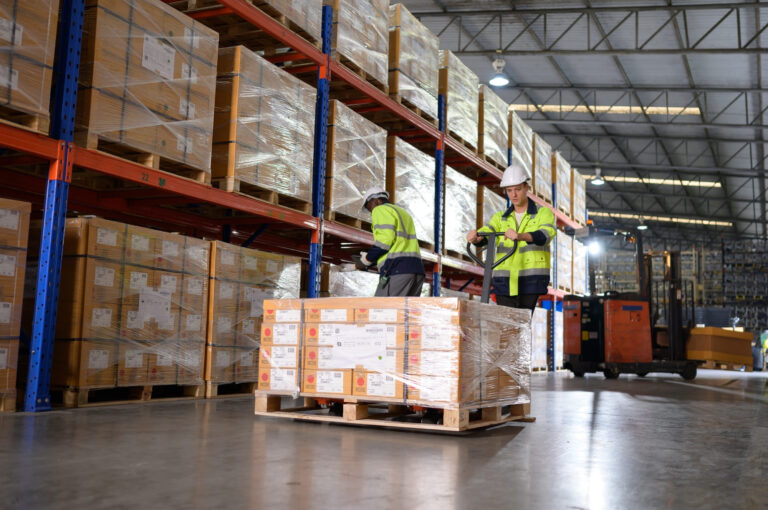
Public Warehouse: A Comprehensive Guide
Public warehouses are third-party storage facilities where multiple companies can rent space and services on a flexible basis. In other words, a public warehouse (or public warehousing facility) is a large, multi-client warehouse owned by an independent provider, not by a single company. Businesses facing seasonal surges or fluctuating inventory needs often use public warehousing […]
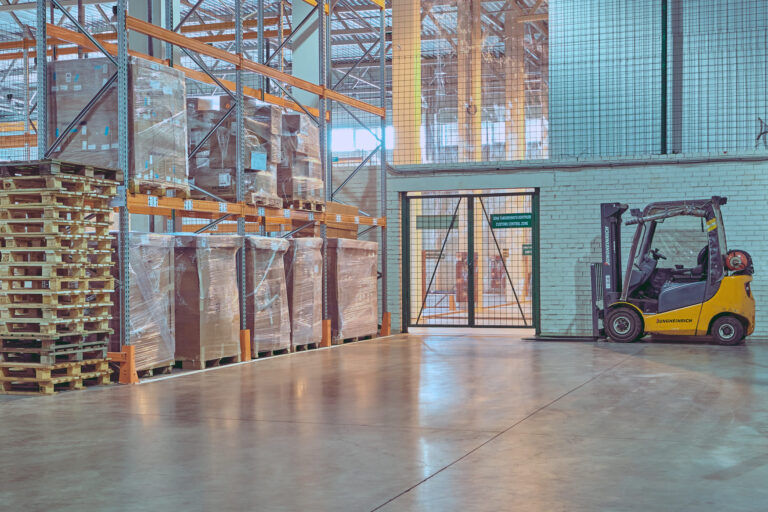
Bonded Warehousing Solutions: Reduce Duties & Streamline Imports
Bonded warehousing solutions allow importers to store goods without upfront duty payments, effectively creating duty-free storage that boosts cash flow and streamlines the import process. By using a bonded warehouse – a secure facility under customs supervision – companies can defer taxes and tariffs on imported goods until those goods are released for domestic sale. […]
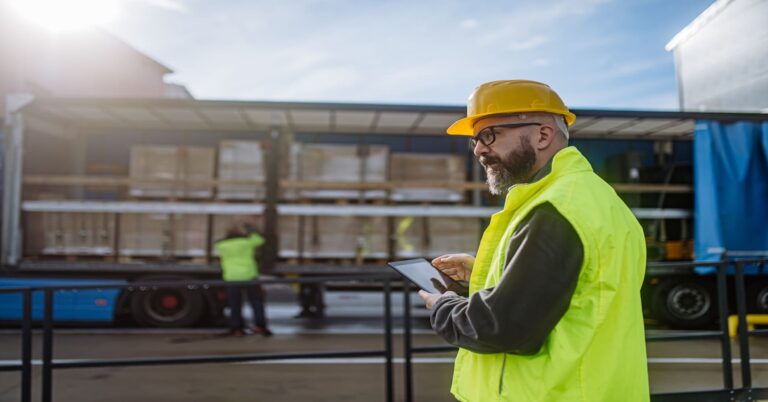
Best Practices for Warehouse Receiving Processes
Warehouse receiving is the essential first step of warehouse operations – it encompasses everything from unloading inbound deliveries to updating inventory records. In practice, an effective warehouse receiving process means checking in, inspecting, and storing all incoming goods promptly and accurately. How inventory is received at a warehouse sets the tone for the rest of […]
Ready to streamline your warehousing needs?
Request a quote today and discover how OLIMP's tailored solutions can optimize your operations